 
  
Squirrel or Machine? An interview with artist Hans Rickheit
Published December 20, 2010 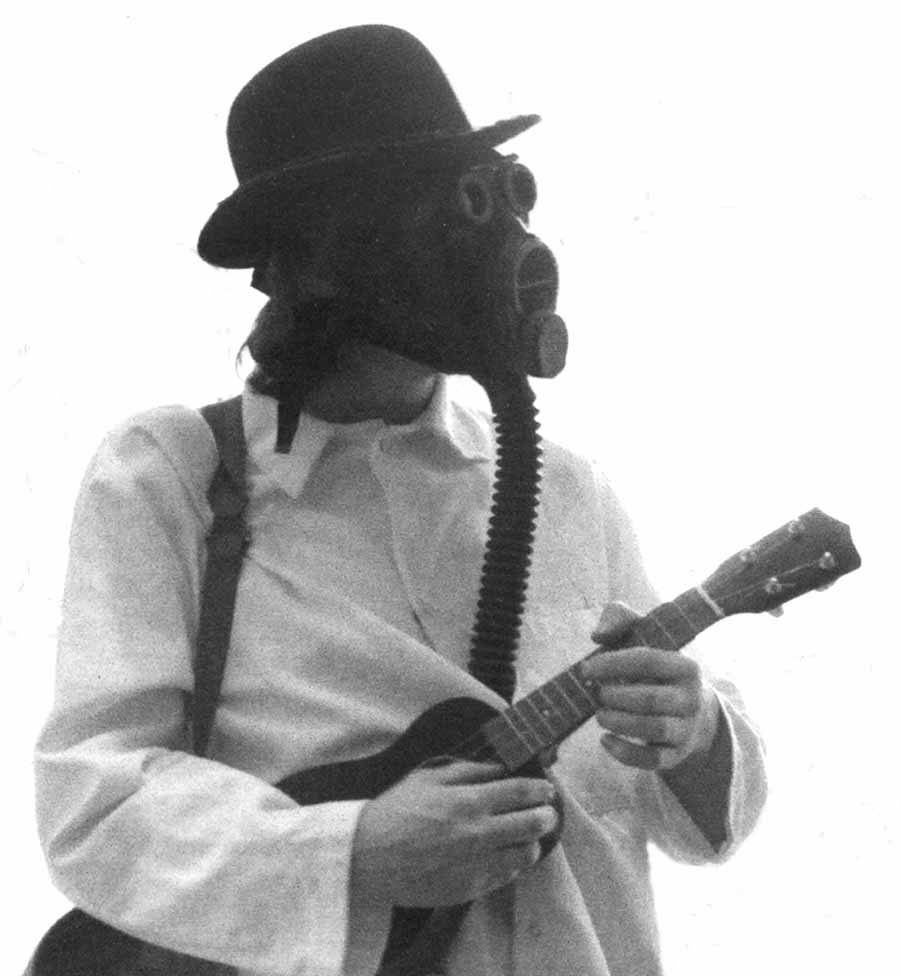
From his early days self-publishing his Chrome Fetus comic series to his more recent Fantagraphics book The Squirrel Machine, artist Hans Rickheit has long worked in a dreamlike world of his own creation. This nocturnal realm is populated by the fascinating, at times grotesque, characters surrounded by surreal imagery and subjected to twisting plot lines. When reading one of Han's strips or longer comic stories, these nocturnal immersions have a tendency to leave your brain in a sleepwalker's haze or with the sensation of having a grain of sand stuck in the eyeball of your subconscious. In addition to working on another collection for the Fantagraphics publisher, Rickheit's ambitious ongoing page-per-week project Ectopiary recently surpassed its fifty-two week mark and there are many more irons in the fire of Rickheit's fevered brain. So without further adieu, ladies and Gentlemen, Hans Rickheit. — Chris Auman
Congratulations on completing the first fifty-two weeks of Ectopiary. I now have a reason to live another ten years. Was this project a way to force yourself to produce on a weekly deadline? Nothing would please me more than to be able to spend the majority of my time scribbling and dreaming. Nobody has to force me to draw these comics. In fact, it seems that the world of practicalities and mundane endeavors is hell-bent on inhibiting my ability to simply sit at the drawing table undisturbed. Nobody cares about art. All they want are sandwiches.
Do you even remotely know how it ends? In my mind, the overall story of Ectopiary divides into three parts. The final chapter ends with Dale as an adult. That is all I'm willing to say right now. Fair enough. Your stories seem to be set in the past, Ectopiary is set the 50s. Why did you chose that decade or did it just develop that way once you started drawing? Jaques Tardis once told an interviewer that he used historical settings in his comics because he disliked drawing modern architecture. I think the same impetus applies here. The contemporary world is a very ugly and crass place. When I began Ectopiary, I had originally intended that it took place in the mid-forties, however, numerous time-specific details began to insinuate themselves. Hence, I've modified it somewhat. I think the story begins in 1957. I could be wrong.  Your graphic novel, Squirrel Machine, is set in the 1800s. Your native Ashburnham, Massachusetts is an old town—never been there, but I would assume it would have a colonial fee to it and you’ve also lived in Boston and Philadelphia, some of the oldest cities in America, do you think these surroundings influence the settings of your stories? Undoubtedly. A great deal of my comic stories take place in the fictional township of Clemens, which probably exists somewhere in Eastern Massachusetts. Wherever I could appropriate references for background details, I used them.
My greatest resources were the Arcadia Images of America books. It seems that this particular entrepreneurial publisher sends agents out to scour a town's archives for historical photographs, compile them into a quaint paperback book with the name of that specific town on the cover, and sell it to the town's inhabitants, libraries and local shops. There are hundreds of these books. I find them frequently at discount bookstores. 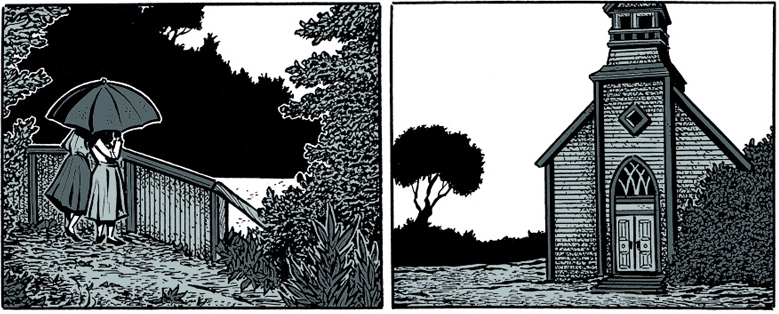
When did you first start drawing and what was your early subject matter? I've been drawing comic books before I even knew what they were. They mostly depicted monsters battling each other. I vaguely remember receiving some comic books as a Christmas gift before I learned how to read. I think it was the issue of Marvel Team-Up with The Thing and The Hulk and a cameo by Howard the Duck. That was a big influence on my six-year old mind, I'm sure. What were your biggest influences as a young artist? How young do you mean? Like many of my peers, the television was the babysitter in our household. Crappy science fiction movies, comic books, and other forms of junk culture somehow filtered into the kinds of comics I produce. Because I was obsessed with being a cartoonist, I bought an enormous quantity of comics of every type. I collected, studied and absorbed them continuously. This is not a good way to spend your youth. The following is a short list of influential comics and cartoonists from my childhood: Jack Kirby, Jim Woodring, Dave Sim, 70's Heavy Metal, Larry Marder, Mahendra Singh, Moonshadow, Edward Gorey, Walt Kelly, The Freak Brothers, Don Martin, EC Comics, Crumb, Paul Mavrides, No Such Thing As Monsters, Moebius, Escape from Suburbia by Caza, Shary Flenniken, Gahan Wilson, Rick Geary, Katsuhiro Otomo, John Bergin. When did you start producing your own mini comics? Were these precursors to Chrome Fetus in subject and style? I produced my first mini comics when I was eleven. It was a truly awful super hero comic called Fire-Hand, I was convinced it was brilliant at the time (in that way that only eleven-year-olds can.) I sold them for seventy-five cents at the local comic book stores. They had the sophistication of an early Hanna-Barbera cartoon written by a retard. I can't bear looking at them now.
When I was fifteen, after seeing the work of Jim Woodring and Mahendra Singh, I started drawing comics based on dreams with weird imagery. I drew the first Chrome Fetus comic when I was seventeen. They ran about twelve to sixteen pages each and lasted about ten issues. The second run of Chrome Fetus minicomics started after I quit college in 1993. The first three issues of that series will never be reprinted. 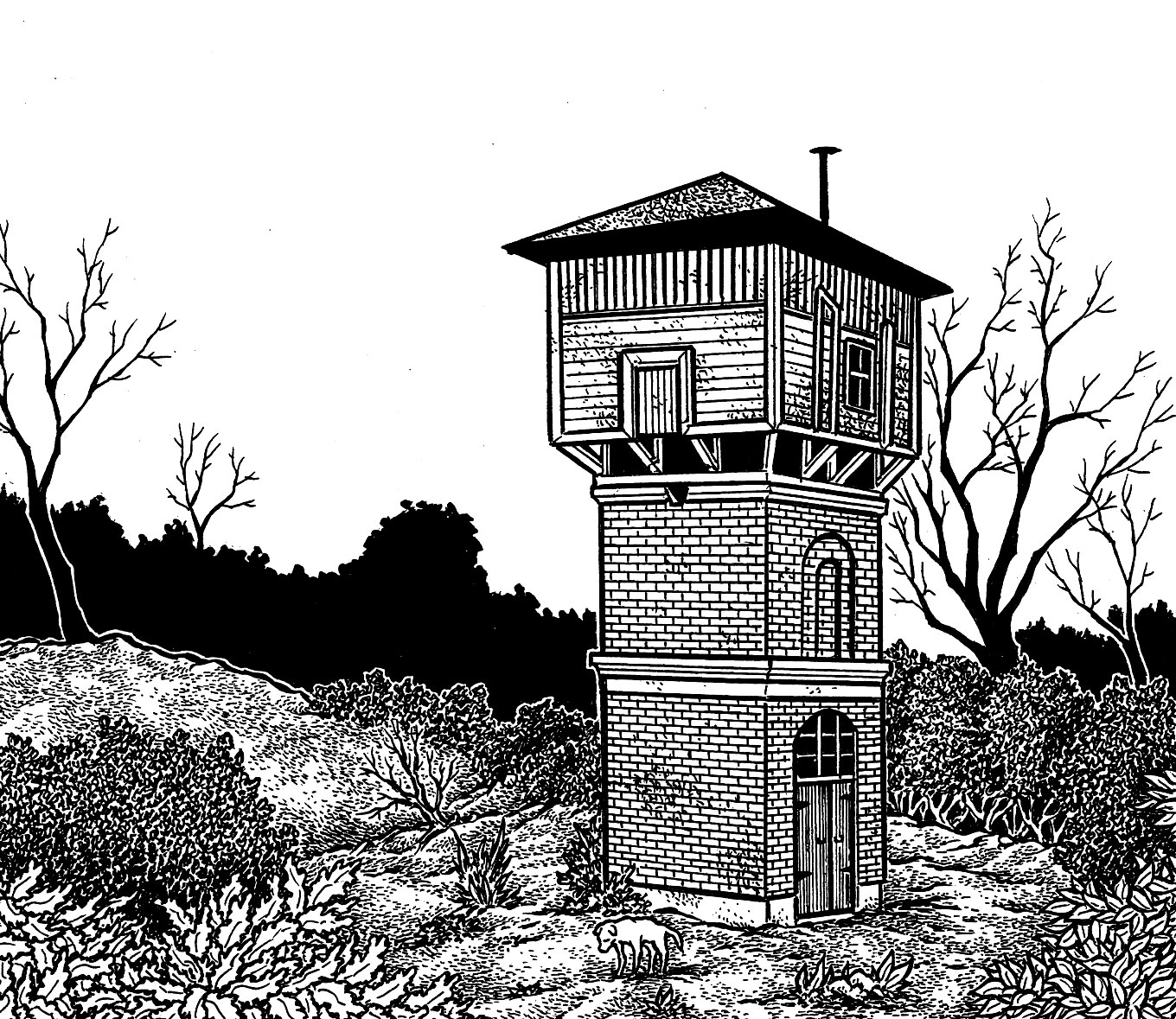
Your strips have a dreamlike quality—some might say nightmarish—are they really inspired by dreams or just sort of the nocturnal state in general. Do you keep a dream journal? I used to be vary assiduous about keeping a dream journal. Considering I spend a third of my existence in that state, it seems important to keep a record of it. I'm afraid that habit has tapered off over the years. Perhaps this interview will inspire me to start again. What’s your drawing routine—time of day, before/ after work, how much time do you spend, et cetera? I maintain a very meager existence from working three days a week at a minimum wage/bottom-feeder job. The rest of the time, in spite of distractions, I spend at my drawing table;about ten to twelve hours a day. Weekends are spent with my girlfriend, another absolutely worthwhile activity. 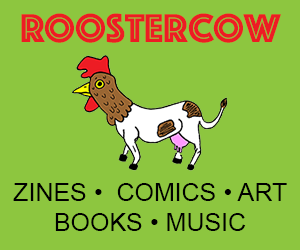
Is it difficult to find the time to draw? A lot of artists claim to be undisciplined yet produce a lot of work. I have no personal problem with pissing my life away hunkered over a drafting table. Many undisciplined cartoonists can produce hundreds of pages of redundant crap. A hardworking artist strives to continuously improve their abilities. One should never become complacent. One should always be aware and learning. Do you listen to music while you work? Many professional cartoonists assert that you should never listen to music when working. My own brain is too noisy and distracting when left by itself in a silent room, so I do listen to a lot of music. I have plebeian tastes. Although I have a deep appreciation of 20th century composers, experimental music and jazz, I play mostly 70's prog-rock recordings when I draw comics. Extensive psychedelic jams make good head-noise for productivity without being demanding or distracting. Hawkwind, Kevin Ayers, King Crimson, Egg and early Pink Floyd tend to sift through my ears a lot. 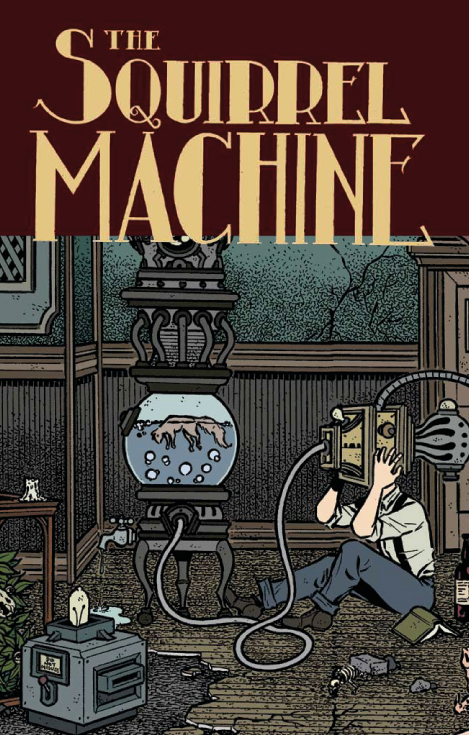
How did the Squirrel Machine book come about with Fantagraphics? The Squirrel Machine was originally agreed to be featured online at Serializer.net. Unfortunately, their site went through some kind of serious technical difficulties, and consequently the feature was canceled before it ever began. I continued drawing the book for a couple of years before I decided to send samples to Eric Reynolds as a proposed serialized feature in the Fantagraphics MOME anthology. He responded positively, but recommended that it would be better published in completed form. I met and talked to Gary Groth at a convention, and he was impressed enough by the book and the Chrome Fetus Comics to publish the book. You were able to do a book tour to promote it as well. What was that experience like? Very few people came to the book signings. The weirdness of the book combined with my own personal anti-magnetism assured empty rooms at most venues. I spent a lot of time driving and lost money. As depressing as that sounds, there were a few highlights. All of the store owners who were kind enough to host the appearances were truly marvelous people who cared very much about getting strange and interesting literature into the public eye. It was an otherworldly experience when I walked down Broadway in New York City early in the morning, bleary-eyed with coffee in hand. In the windows of several big-chain bookstores were multiple copies of The Squirrel Machine next to Robert Crumb's Genesis book, which had been released at the same time. That evening I met up with some of New York's more talented cartoonists for beer and drawing jams. At the Boston signing, some old friends unadvisedly appeared and provided a dramatic reading of the final chapter of the book. Although I was appreciative of their enthusiastic support, I don't think the store owners appreciated their scaring away all of the other customers—especially when one of my friends unveiled a gift in the form of a found-art sculpture which incorporated a desiccated squirrel corpse.
Being unaccustomed to so much public speaking, I lost my voice. The following day, I had scheduled a signing at an independent bookstore in Fitchburg, near where I sold my comics as a kid. I had a vague notion of having the "returning conquering hero"experience. Unbeknownst to me, the event had been advertised throughout the small town as a sort of literary book-reading event. There were a dozen quaint, gray-haired librarian-types in the room when I got there. It was the largest attendance in the signing tour. I had to whisper gravelly hoarse explanations of my weird subversive book to these poor confounded creatures.
Ultimately, the book tour was worth doing. I managed to get a decent amount of press covering the book, and I certainly felt smarter at the end of it. Next time, I'll send out a nicer-looking, more amicable stand-in with a rubber life-mask of my face and giant prosthetic tits. I think I read somewhere that you’ve also made a few films. Are these similar to your other artwork in feel and tone? I've attempted making movies. They are completely inconsequential. In my mind, my comics are movies that I am unable to make. If I were ever to attempt making movies again, I would definitely use puppets instead of actors. Who are your favorite filmmakers or favorite films? Thanks to the brilliant work of The Brothers Quay, I was able to discover the work of Jan Svankmajer, whose influence can be seen very clearly in my work. I like the films of Luis Bunuel, Hans Richter, Guy Maddin and Jodorowsky. I like old cartoons, low budget sci-fi and horror films, Chinese fantasies, Hercules movies and pornography. You an obscurantist, what’s that about? I quote the writing of Empire S.N.A.F.U. , "Lucidity is a sore dog to swallow." 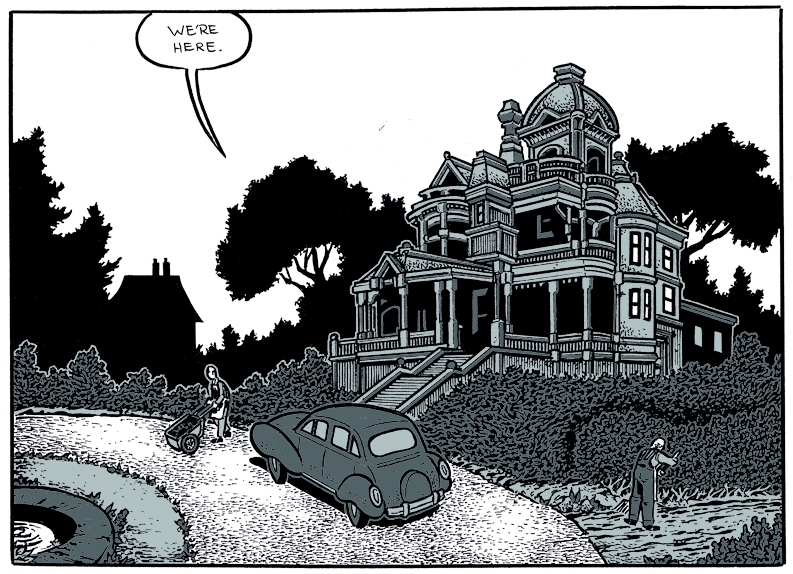
You’ve cited Burroughs, Kafka and Beckett as a few of your influences, in what ways do these writers influence your art? I've definitely stolen William Burrough's cut-up writing technique to get story ideas. Regarding Kafka and Beckett, I admire their clockwork precision. Their books are like mechanical devices that must engage and process specific actions when activated. I like watching machines doing things. You script your own stories or course, but do you do any other writing? Not really. I don't even write scripts for my comics. At best, I might have some notes jotted down somewhere. If I were to prepare a script, it would become obsolete once I drew the first panel. Organisms do not pullulate by preplanned diagrams. Could you describe the Empire S.N.A.F.U. Restoration Project? Their website would provide a better explanation than myself. I've known the organization's curator, E. Stephen, since childhood. There is no denying the profound influence of S.N.A.F.U.'s shrines and legacy on my own feeble efforts. Are you working on any other projects beside Ectopiary? Always. I am currently working on a possible multimedia comic that requires a musical soundtrack to tell the story. This is a collaboration with Katt Hernandez, one of the finest violinists alive today. She currently lives in Sweden and is mostly known for her improvisations that incorporate eastern music and microtones.
I am also possibly going to draw a comic based on a script by the noteworthy Mahendra Singh, a damn genius who has recently produced a breathtaking adaptation of Lewis Carroll's "The Hunting of The Snark."The script in question is (in M. Singh's words) "a sort of Aki Kurismaaki thing, the story of Faustus in west Texas."
In addition, I am currently putting together a collection of my better mini-comics for Fantagraphics called . The book is currently scheduled for release in Autumn 2011. Reserve your copy now! Are there any other artists working right now that you admire, that influence or inspire you or you’d care to plug? I despise most contemporary art. Many of my favorite artists are other cartoonists. Some of them are successful enough that they don't need a plug from me. Here is a list of some that I recommend very highly: Robert Goodin, Jamie Tanner, Josh Simmons, Sarah Oleksyk, Nate Neal, Evan Dahm, Dylan Meconis and Robin Bougie. Talented luminaries, all. Are you going to eat that biscuit? Metaphorical biscuits should be regarded with caution. Let's feed it to the family pet first and see what happens. Shop for books by Hans Rickheit. As an Amazon Associate, this website earns commission from qualifying purchases. 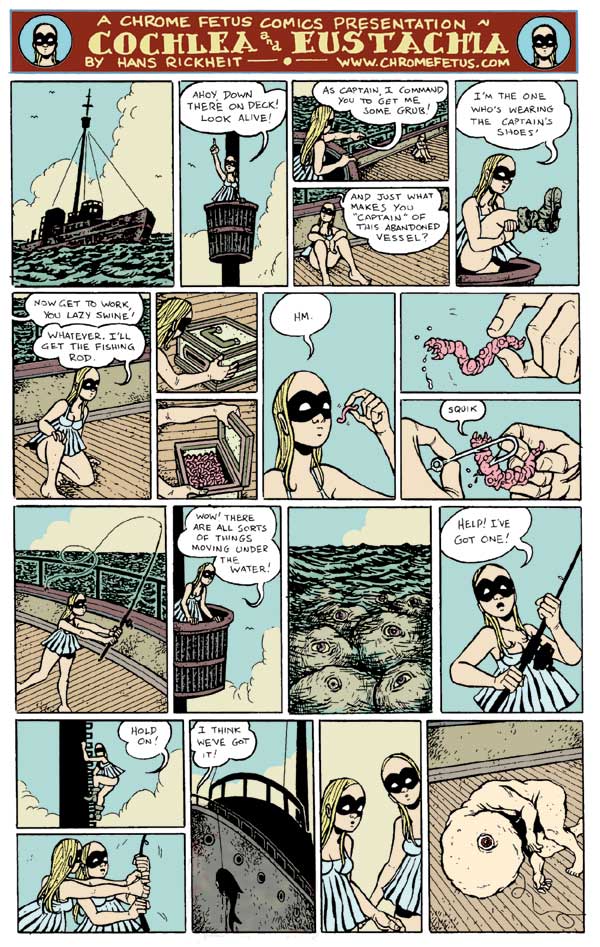
Read more comics artist interviews: Jesse Reklaw
John Porcellino
Mimi Pond
Tom Neely
Ed Piskor
Derf Backderf
Andrew Maclean
Jef Czekaj
Jeffrey Brown
Box Brown
Simon Gane
Corinne Halbert
Ben Snakepit |